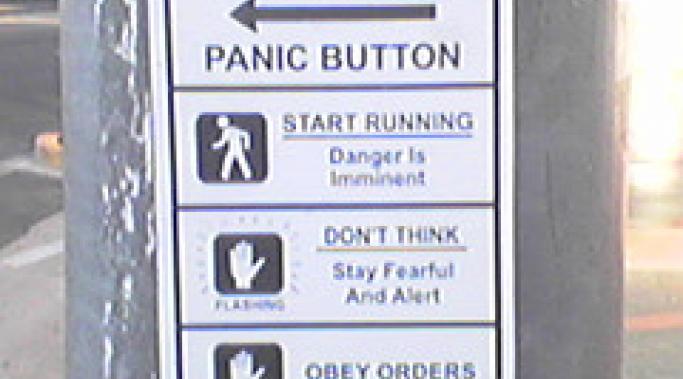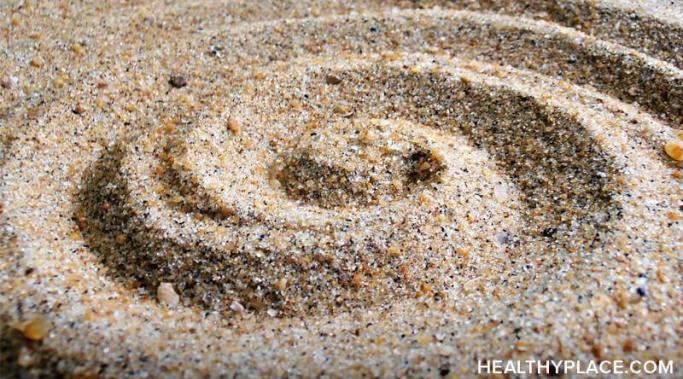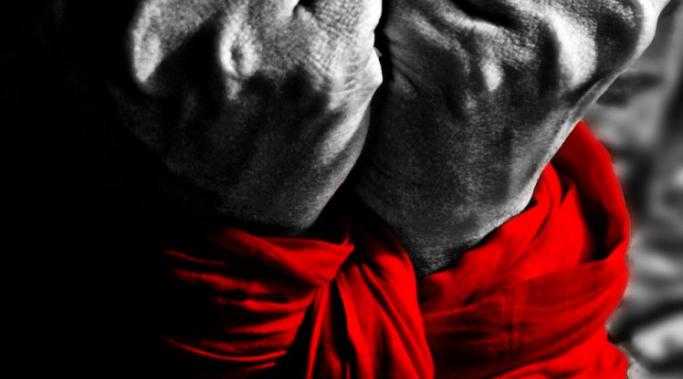People who experience anxiety often get stuck in the cycle of avoidance, leaving them feeling trapped, like they can't do anything about their anxiety. For want of better options, they hide - from it, and in many cases, from the world.
Having an anxiety disorder is like having a hateful, hyperactive internal alarm system; It only detects the judge, not the jury. The verdict is practically irrelevant: you already know it's guilty. Like predictive text for panic disorders.
That alarm doesn't care about the guy flirting with you, or the reassuring smile the waitress gives.
What sensations, ideas, emotions, experiences make up anxiety?
Treating Anxiety
It may seem obvious: that one should recognize any progress made in terms of mental health recovery but if I don't stop and look, it's all too easy to (dis)miss; The things that have changed in terms of treating anxiety and PTSD recovery are never the things I would've expected when I started all this.
I also have the baggage that usually goes along with anxiety disorders: great expectations. I'll bend over backwards trying to achieve the very things I think will help me, simultaneously imagining that they're impossible for me.
Self-Care. Mental health depends on it, but self-care can be something of a confronting word. As if implying I developed a mental illness because I didn't take responsibility for my mental health issues. That may sound like a stretch, but when my therapist says self-care in a tone that says "I can't believe you don't know how take care of yourself!", I feel a little guilty anyway.
Anxiety can stop me from trying new things. Lately I've been okay except when I go to try something different. Then it's all systems panic, followed up with a few days of fatigue and uncertainty. Some of this anxiety is about keeping me in my safety zone. A part of my brain figures that if I stay right there, nothing too terrible can happen. Then that annoyingly rational part chimes in to tell me that A. it pretty much already has, and B. staying in my safety zone won't treat anxiety, or PTSD.
One of the cardinal cognitive distortions of anxiety:- Thinking everyone else is perfect and has it together 100%. Everyone except you. That everyone else in the nearby vicinity's better than you because, well, it just seems obvious at the time. For the same reasons my self-esteem's been dented along the way to wherever I am now. Thinking like that not only increases the likelihood I'll panic, it increases the amount of pressure I put on myself, and the degree to which I'm then able to recognize what is and isn't anxiety talking.
"It'll go away, it just needs time, then I won't have to worry anymore...
It wasn't a big deal, or if it was it doesn't matter now. It's over. I'm fine, and I have all these anxiety coping skills. What's there to talk about anyway?"
I can't count the number of times I've thought that way about my mental health.
The message of silence is one that trauma survivors, and those with mental illness receive loud and clear, from society and often very directly from those closest to them. Most internalize it so deeply that it's years before they realize it isn't their voice. That it never was. That it doesn't have to be.
Whenever I think I know what I'm doing, that's when I start to worry.
It's this river running inside me: anxiety. Like background noise that's so strong and permanent you don't really hear it anymore. It's just there, the same as the air moves or my heart beats. I stop, sometimes. Knowing something has to change but unsure what, where, who, or how.
If I'm not anxious, what will I be?
How about loved, valued, self-assured.
I'm somewhat reluctant to blog about suicide, but I have decided to put a few thoughts down. They're rushed, unfinished thoughts because that's the nature of the situation: a friend attempted suicide a few days ago. As I sat at the computer, contemplating what to say this week, I couldn't think about much else.
Trauma and anxiety change lives. Profoundly, and at their most fundamental levels.
It seems obvious, once said. One of those things: it is what it is, right?
Anxiety: Sh## happens, then you...
Then you pick up the pieces. Then you realize life isn't something you can wear emblazoned on your chest. It isn't a war wound, or a slogan. And you don't get a medal for making it out alive.
Not when the fight is a 'normal', every day thing.
Dealing with trauma anniversaries, triggers and the general anxiety that goes along with them is one of the toughest parts of having an anxiety disorder. So today I've got some tips to help you cope with anxiety cues, and heal post traumatic stress.








